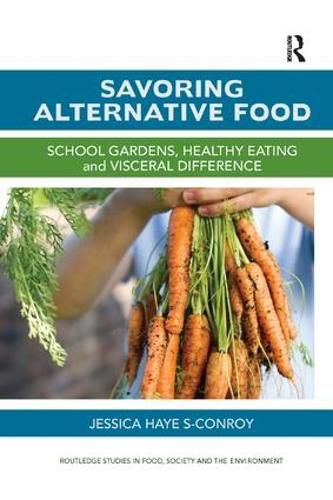Readings Newsletter
Become a Readings Member to make your shopping experience even easier.
Sign in or sign up for free!
You’re not far away from qualifying for FREE standard shipping within Australia
You’ve qualified for FREE standard shipping within Australia
The cart is loading…






Advocates of the alternative food movement often insist that food is our common ground - that through the very basic human need to eat, we all become entwined in a network of mutual solidarity. In this challenging book, the author explores the contradictions and shortcomings of alternative food activism by examining specific endeavours of the movement through various lenses of social difference - including class, race, gender, and age.
While the solidarity adage has inspired many, it is shown that this has also had the unfortunate effect of promoting sameness over difference, eschewing inequities in an effort to focus on being together at the table . The author explores questions of who belongs at the table of alternative food, and who gets to decide what is eaten there; and what is at stake when alternative food practices become the model for what is right to eat? Case studies are presented based on fieldwork in two distinct loci of alternative food organizing: school gardens and slow food movements in Berkeley, California and rural Nova Scotia. The stories take social difference as a starting point, but they also focus specifically on the complexities of sensory experience - how material bodies take up social difference, both confirming and disrupting it, in the visceral processes of eating.
Overall the book demonstrates the importance of moving beyond a promotion of universal shoulds of eating, and towards a practice of food activism that is more sensitive to issues of social and material difference.
$9.00 standard shipping within Australia
FREE standard shipping within Australia for orders over $100.00
Express & International shipping calculated at checkout
Advocates of the alternative food movement often insist that food is our common ground - that through the very basic human need to eat, we all become entwined in a network of mutual solidarity. In this challenging book, the author explores the contradictions and shortcomings of alternative food activism by examining specific endeavours of the movement through various lenses of social difference - including class, race, gender, and age.
While the solidarity adage has inspired many, it is shown that this has also had the unfortunate effect of promoting sameness over difference, eschewing inequities in an effort to focus on being together at the table . The author explores questions of who belongs at the table of alternative food, and who gets to decide what is eaten there; and what is at stake when alternative food practices become the model for what is right to eat? Case studies are presented based on fieldwork in two distinct loci of alternative food organizing: school gardens and slow food movements in Berkeley, California and rural Nova Scotia. The stories take social difference as a starting point, but they also focus specifically on the complexities of sensory experience - how material bodies take up social difference, both confirming and disrupting it, in the visceral processes of eating.
Overall the book demonstrates the importance of moving beyond a promotion of universal shoulds of eating, and towards a practice of food activism that is more sensitive to issues of social and material difference.